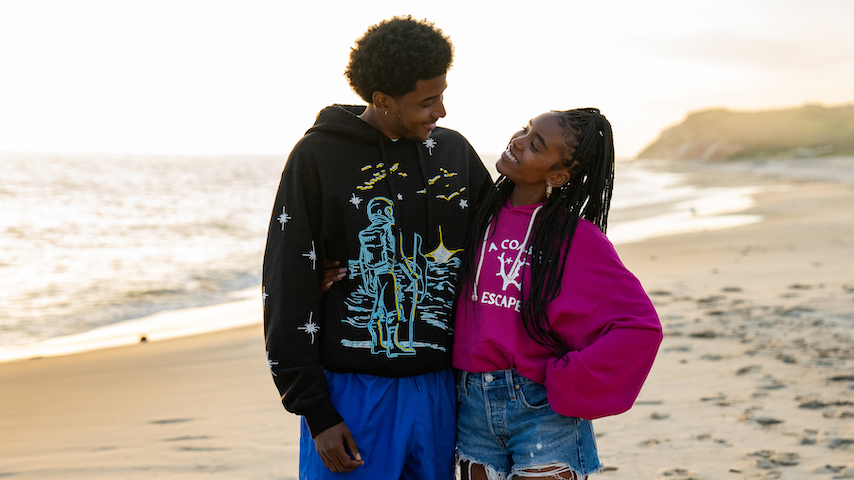The big-hearted Forever does teen romance right
Judy Blume's controversial classic gets an inspired TV makeover.
Photo: Elizabeth Morris/Netflix
Sure, it’s fine when a character gets their teeth knocked out on the school playground in a YA book, but when a young couple has to contend with premature ejaculation in their story, some people get all mad. At least that’s what Judy Blume came to realize when her 1975 teen romance novel Forever… stoked controversy upon its release and spent years on banned-books lists. Luckily, for many readers, it was a formative text, preparing them for sexual experiences to come that the adults in their world didn’t have the language, or guts, to dig into with them. Mara Brock Akil (Girlfriends, Moesha) was an admirer of the book, and now, with the release of her eight-episode adaptation of Forever on Netflix (which counts Regina King as one of its directors and EPs), audiences can be treated to the poignant tale through her unique lens, one that highlights Black culture and incorporates modern technology to update its themes for today’s teens.
The adolescent lovebirds in question are Keisha Clark and Justin Edwards, two high-school athletes, who rekindle a childhood friendship at a New Year’s Eve bash and usher in 2018 with a quick and passionate kiss. Their mansion-party meet-cute (reacquaint-cute?) is glamorous. Sampled strings swell, white lights create a hazy and cinematic glow, and there’s even a fountain beside them (a fondue fountain, but still). Keisha and Justin are portrayed with heart by Lovie Simone and Michael Cooper Jr., and the spark they share is a bright one. Their flirtation is witty, their sexual chemistry is palpable yet playful, and their connection feels at once like a magnetic pull and a homecoming when they find each other.
One thing is clear from the start: These children are cherished. Not only are the two leads compelling in and of themselves, cute as buttons and charming as hell, but their powerful relationships with the supporting characters further underscore their preciousness as people. Keisha’s mom Shelly (Xosha Roquemore) works two jobs to ensure that her kid can attend the private high school that will boost the track star’s scholarship odds. Coming home from a night shift, Shelly kneels at the foot of Keisha’s bed to pray for her daughter’s well being and to give thanks for the girl. Though her dad is off playing baseball in the Dominican Republic, his father (her Grandpa George) is there at every turn, popping by for dinner when her mom is off working and picking her up at 4 a.m. to run drills with her. Even her older cousins Tiffany and Brittany dote on her, braid her hair, and attend every event that matters. Her success is their success, and sometimes she takes on more responsibility for maintaining their happiness than she reasonably should.
Meanwhile, in the tradition of many love stories, Justin’s parents are on the wealthier side of the equation. They provide their son with all of the tutoring and additional basketball training they can arrange to give him the best chance of achieving their dream for him to attend Northwestern University (and build an NBA career from there). Because their boy has ADHD—this is something Forever specifically (and refreshingly) addresses, and there is also speculation that he may be on the autism spectrum—they remain heavily involved, attending meetings with his counselor, hovering to ensure that he completes his college applications by their deadlines, and taking him to train in Compton to build his basketball skills.
 Keep scrolling for more great stories.
Keep scrolling for more great stories.
